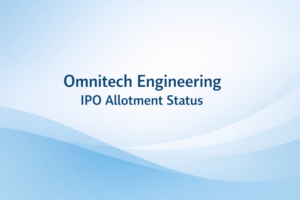Maximize Chances of Getting IPO’s – Know More

Introduction
The IPO landscape in India in 2024 is booming, with companies from tech startups to traditional industries flooding the market to go public. As India continues its growth trajectory, retail investors are eager to cash in on new opportunities, making IPO allotments highly competitive. Oversubscription is common in retail investors, jostling for listing gains.
These are the top things to keep in mind to increase the chances of getting IPO allotment, but let’s understand the IPO process first.
Investor Applications
Investors, including retail, High Net-worth Individuals (HNIs), and Qualified Institutional Buyers (QIBs), apply for shares within the IPO subscription window (typically 3-5 days).
Subscription and Oversubscription
If demand exceeds available shares (oversubscription), allotment is conducted differently for each category:
- Retail Investors: Allotment is done via a lottery system, with each applicant treated equally, regardless of how many lots they applied for.
- HNI & QIB: Allotment is proportionate to the amount applied for, meaning larger applications receive more shares.
Quotas
Separate quotas exist for retail investors, HNIs, shareholders (if applicable), and employees (if offered by the company).
Allotment & Refunds
After the allotment process, successful applicants receive shares in their Demat accounts. Unsuccessful applicants are refunded the amount they applied for.
Listing Day
Once shares are allotted, the company is listed on the stock exchange, and shares begin trading publicly.
Maximizing Chances of Getting Allotment in Various Quotas
Retail Investor Quota
I. Apply for One Lot Only
Considering efficient use of funds, since the allotment in case of oversubscription is based on a lottery, applying for a single lot of shares increases your chances of getting allotted compared to applying for multiple lots. Large applications are treated the same as small ones in oversubscription cases.
2. Use Multiple Demat Accounts
Apply using different Demat accounts of family members. Each application should be for one lot only. Just ensure that each Demat account has a unique PAN and UPI ID, or it will be rejected.
3. Avoid Applying on the last date of IPO Period
This reduces operational risk of UPI mandate failure or issues like UPI mandate not received.
High Net-worth Individuals (HNI) Quota
1. Bid Big
Allotment here is proportional to the size of your bid. The larger your application, the higher your chances of getting an allotment. HNI Allotment is on a proportionate basis or lottery system based on your application and NII over-subscription.
2. Use Margin Funding
You can use margin funding from brokers (if provided) to increase your bid size and increase your allotment chances, but this involves paying interest, so weigh the cost-benefit carefully.
Shareholder Quota
The Shareholder Quota is a special allotment reserved for people who hold shares of the company or its parent entity before the IPO is announced. Here’s how you can leverage this to increase your chances:
- Eligibility: You must own at least one share of the company or its parent company before a specific cut-off date, which is usually days or weeks before the IPO is announced.
- Benefits of Shareholder Quota
- Higher Allotment Chances: Since this is a reserved quota and often less competitive than the retail category, your chances of getting allotted shares are significantly higher.
- Separate Pool of Shares: Even if the retail quota is oversubscribed, the shareholder quota operates independently, so you’re not fighting against retail investors here.
- How to Maximize Chances in Shareholder Quota
- Buy Parent Company Shares Early: If you anticipate that a subsidiary of a large company (e.g., Tata Motors Finance, Reliance Jio) will launch an IPO, buy shares of the parent company (e.g., Tata Motors, Reliance) before the cut-off date to become eligible.
- Apply in Both Shareholder and Retail Quotas: You can apply in the shareholder quota and the retail quota separately using the same Demat account, which doubles your chances.
Example:
If Reliance Retail is launching an IPO and you own even one share of Reliance Industries, you’ll likely be eligible to apply under the shareholder quota. Check the specific eligibility criteria for each IPO to confirm.
Employee Quota
The Employee Quota is reserved for employees of the company issuing the IPO. It’s often available at a discounted rate, and the competition is generally lower than in the retail category. Here’s how to use it to your advantage:
- Eligibility: If you are an employee of the company launching the IPO, or sometimes its subsidiaries, you may be eligible for this quota. Often, companies will communicate directly with their employees about their eligibility and the process for applying under this quota.
- Benefits of the Employee Quota:
- Lower Competition: The employee quota typically faces less competition, meaning a higher chance of getting shares allotted.
- Discounted Price: In many cases, companies offer a discount on the IPO price for employees, making it an even more attractive deal.
- Apply for Maximum Allowed: Since competition is lower and you often get a discount, applying for the maximum allowed in the employee category can significantly increase your allotment size. Check the IPO documents for the exact limits.
- Combine with Retail/Shareholder Quotas: If you’re also eligible as a retail investor or a shareholder, you can apply in multiple categories (Employee + Retail/Shareholder), further boosting your chances.
Additional Tips
Monitor Grey Market Premium (GMP)
Keeping an eye on grey market premiums helps you gauge the popularity of an IPO. High GMP means high demand, but it also means tougher competition in the retail allotment process.
Know the Subscription Numbers
Track the daily subscription levels of each category. If the retail subscription is low, your chances of getting allotted shares go up. Oversubscription means a tougher chance in the retail segment, but may leave the shareholder quota less affected.
Also, current live IPOs this week –
Swiggy:
Swiggy made history by becoming the quickest Indian startup to attain unicorn status, showcasing its immense growth potential. Operating across 500+ cities nationwide, Swiggy has collaborations with a vast network of over 150,000 restaurant partners, offering customers an extensive array of culinary choices. To facilitate seamless and prompt deliveries, Swiggy boasts a sizable fleet of more than 260,000 delivery personnel, underscoring its commitment to efficiency and customer satisfaction. Almost 50% valuation compared to Zomato makes this IPO interesting.
ACME:
ACME Solar Holdings specializes in the development, construction, ownership, operation and maintenance of large-scale renewable energy projects. Its revenue is generated by selling electricity to various customers, including plants supported by the central and state governments. Currently, ACME holds approximately 5.2% of India’s total solar power capacity, reflecting a solid foothold in the sector.
The company’s growth strategy is focused on expanding its capacity to 10 GW by 2026, with an emphasis on utility-scale solar projects and pioneering technologies like green hydrogen. With its established market position, ambitious expansion goals, and a strong project pipeline, ACME is well-positioned to leverage the rapid growth in India’s solar sector, supported by government backing and a technological edge through vertical integration.
Disclaimer
The stocks mentioned in this article are not recommendations. Please conduct your own research and due diligence before investing. Investment in securities market are subject to market risks, read all the related documents carefully before investing. Please read the Risk Disclosure documents carefully before investing in Equity Shares, Derivatives, Mutual fund, and/or other instruments traded on the Stock Exchanges. As investments are subject to market risks and price fluctuation risk, there is no assurance or guarantee that the investment objectives shall be achieved. Lemonn (Formerly known as NU Investors Technologies Pvt. Ltd) do not guarantee any assured returns on any investments. Past performance of securities/instruments is not indicative of their future performance.







